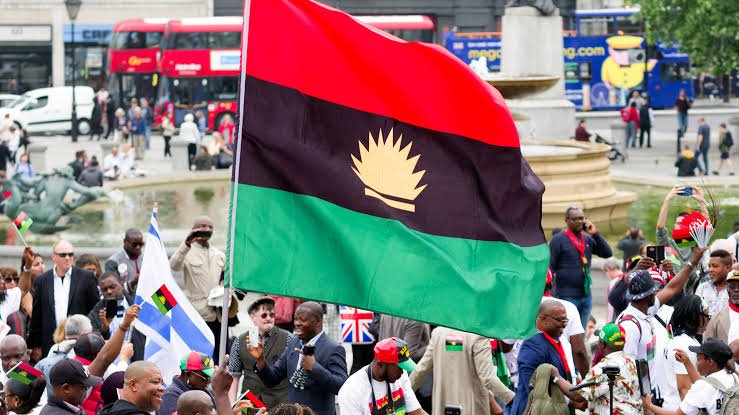
The Federal High Court sitting in Abuja has fixed November 1, to hear an application seeking an order of court directing the National Assembly to create a framework for a referendum in South-eastern Nigeria, so that Igbos can vote on secession from the country.
Plaintiffs in the suit are Kano-based Nastura Ashir Shariff, Balarabe Rufa’i, Abdul-Aziz Sulaiman and Aminu Adam while the first to fourth respondents are the Attorney General of the Federation, Senate President, Speaker, House of Representatives and the National Assembly.
In their originating summons seen by our correspondent, the plaintiff, through their lawyer, S.G Idrees Esq, has asked the court to determine whether the constitution empowered NASS to call for a referendum.
They alleged that Igbos were seeking secession through violence against the state.
“WHETHER considering the violent agitation for self-determination by the people of the South-eastern States of the Federal Republic of Nigeria as deposed to in the affidavit in support of the Originating Summons and the combined effect of the provisions of Section 4 of the 1999 Constitution of the Federal Republic of Nigeria (as amended), and Articles 1, 2, 4, 14 and 20(1) of the African Charter on Human and Peoples Rights (Ratification and Enforcement) Act 2004, the 2th, 3rd and 4th Defendants are not under a legal obligation to provide a framework that will pave way for the self-determination of the South-eastern States so as to leave the geographical entity called Nigeria before any further step is taken to review the constitution?,” the plaintiffs asked.
Idrees therefore prayed the court to order NASS to allow the Igbos leave the country.
The plaintiffs seek the following reliefs:
“A declaration that by the combined effect of the provisions of Section 4 of the 1999 Constitution of the Federal Republic of Nigeria ( as amended) and Articles 1,2, and 20(1) of the African Charter on Human and People’s Rights ( Ratification and Enforcement) Act 2004, the 4th defendant is empowered to set in motion a framework for a referendum to allow the South-eastern states of Nigeria to decide on their bid for self-determination.
“A declaration that in view of the provisions of Articles 1,2,4, 14 and 20(1) of the African Charter on Human and People’s Rights ( Ratification and Enforcement) Act 2004 , the 2nd and 3rd defendants have the power to call for a joint session of both Houses of the 4th defendant to deliberate on the agitation for self-determination by the South-eastern states of Nigeria.
“An order directing the 2nd, 3rd and 4th defendants to provide a framework that will pave way for the self-determination of the South-eastern so as to leave the geographical entity called Nigeria before any further step is taken to further amend the constitution of the Federal Republic of Nigeria.
“Such further or other orders as this Hon. Court may deem fit to make in the circumstances of this case.”
Our correspondent gathered that Justice Inyang Ekwo will preside over the case.
The development is coming amid the federal government’s face-off with secessionist groups in the country.
The Indigenous People of Biafra(IPOB), led by Nnamdi Kanu, who is now in detention, has recently spearheaded agitation for Biafra.
He is facing prosecution on charges of treasonable felony.



Discussion about this post